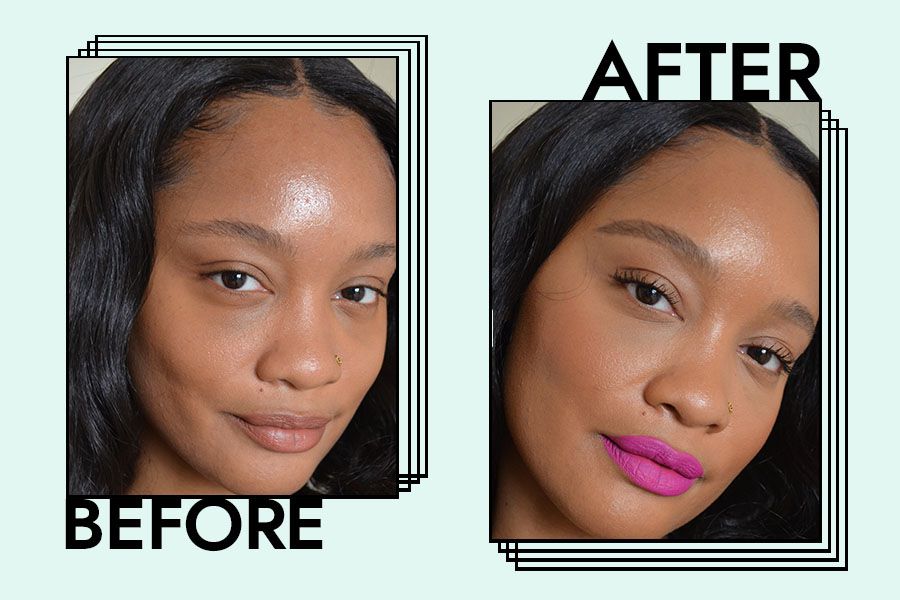Truth: You Don’t Need to Avoid Retinoids During the Summer
Over the years, experts have touted retinoid as a godsend for people looking to reduce acne, wrinkles, and fine lines. Retinoids are derivatives of vitamin A converted into retinoic acid for use in skincare to stimulate collagen, replace old skin cells, and much more. While it’s known for its plentiful skincare benefits, many are reluctant to use a retinoid because of its reputation for being harsh on the skin, especially in the sun.
This misunderstanding has led people to consider avoiding the ingredient entirely, especially in the summer. But dermatologists are working to debunk this myth and educate patients looking to double down on their skincare routine this season.
Retinoids Can Be Used Daily
According to Dr. Loren Franco, a board-certified dermatologist, most people (who aren’t pregnant) should be using some form of retinoids in their skincare routine daily—even throughout warmer months. “You absolutely can and should use retinoids in the summer,” Dr. Franco says. “My blood boils when a patient tells me someone advised them to avoid retinoids during the summer.”
Most people can benefit from using retinoids year-round, but the type of retinoids used and the frequency will determine how it’ll affect their skin. For example, retinol is the most common type of retinoid used in over-the-counter products. On the other hand, retinoids typically refer to a prescription medication that’s much stronger than retinol.
Why Many Are Hesitant
Hesistation about using retinol in the summer may come from fear of exacerbating your skin when it’s already irritated. However, retinoid sensitivity mainly occurs when you haven’t found the appropriate formula for your skin or if you are getting adjusted to the prescription-strength medication.
If your skin feels like it’s burning when using retinoids, that means it’s working to turn over dead skin cells and produce new, healthier ones. During that transition, your face may become irritated and red. Naturally, you may think the sun will irritate your skin even more, which may be accurate if you just started using retinoids, but not enough to cause sun damage. Dermatologists do tell patients not to apply retinoids before sitting in the sun, but it has more to do with the formula’s efficacy than your harm to your skin.
Can Retinoids Be Used During the Summer?
Retinoids, including over-the-counter and prescription, can make your skin mildly sensitive to the sun, but it doesn’t mean you have to eliminate the category. According to research, there’s no evidence of photo-allergy or photo-toxicity with retinoids. “As long as you apply sunscreen daily and reapply when outdoors, your risk of burning from a retinoid is [small]” Dr. Franco explains.
Your skin, though, isn’t the only thing that may become sensitive under the sun. Retinoids themselves are sensitive to sunlight, which can impact product efficacy. “The sun deactivates the retinoid medication, making it less effective. To avoid this, we tell patients to use it at night,” she says.
By using retinoids at night, you’re not avoiding skin irritation. Instead, you’re ensuring the retinoid’s effectiveness on your skin. “Retinoids are sensitive to UV light. Therefore, with sun exposure, the products become less effective,” Dr. Alexis Parcells adds. Even though retinoids don’t cause sun damage, Parcel says that applying SPF 30+ on your face daily with reapplication is essential to protecting the overall health of your skin.
Skincare Products to Avoid During Summer
While you should avoid using retinoids in the sun to prevent their efficacy from decreasing, you should skip some products because they can cause skin sensitivity and damage. “There are a lot of ingredients, both over the counter and prescription, that can make your skin extra sensitive to the sun and increase the likelihood of burning,” Dr. Franco says. You may be familiar with the harmful effects of suntan oil, but the same goes for some oil and some plant-based skincare products, too.
“The most important ones to avoid are essential oils or skincare products containing citrus ingredients like lemon, grapefruit, bitter orange, or bergamot, which are all phototoxic. They contain furocoumarins that, when exposed to sunlight, can burn your skin. These are a big no-no in the summer.”
Dr. Franco also adds that hydroquinone, an ingredient to help with hyperpigmentation, can also increase your sensitivity to the sun. “We recommend using it at bedtime along with strict daily sun protection,” she explains. “AHAs and BHAs, especially in higher concentrations, can make you extra vulnerable to sunlight. Lay off the higher concentrations unless you plan on practicing strict sun avoidance and sun protection.”
The Final Takeaway
If you’ve never used retinoids in your skincare regimen, consider adding them to your nighttime routine this summer. Experts agree that the ingredient shouldn’t be subject to seasonal doubt, and your summer skin will be better off for it—when used correctly. And, as always, use an SPF of 30 or higher every day, even if you’re inside.










